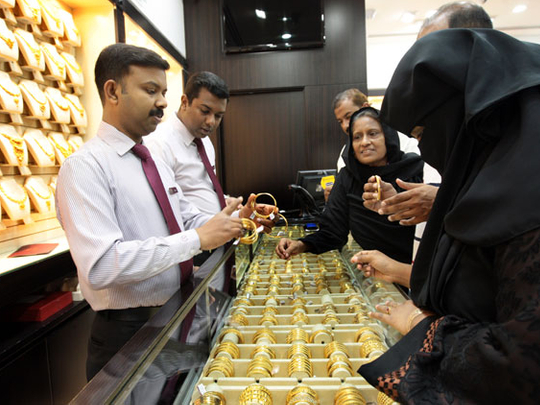
Dubai: After taking a beating in 2013, gold will have a decent year in 2014, with the prices forecast to stabilise and reach the $1,400 (Dh5,142) level an ounce, an expert told Gulf News.
Last year was considered the worst period for the precious metal, which lost nearly 30 per cent of its value. After trading at one of its lowest prices, $1,204.50 an ounce last December 30, gold climbed to $1,254.05 an ounce yesterday, the highest in January.
“Toward the end of the year, we could see a normalisation and a stabilisation of the gold price and I would expect a continuation of this,” Rolf Schneebeli, CEO of Gold Services AG, a gold and investments advisory firm in Dubai, told Gulf News yesterday.
Gold prices this year will be influenced by a number of factors, which include buyer sentiment. Prices could spike should critical unforeseen developments happen in politics and the global economy.
“If something unexpected happens, the price might skyrocket. If nothing happens, the highest price might be $200 higher than at the end of the year,” said Schneebeli. He, however, refused to elaborate on specific circumstances that could drive the prices to take off.
“The inflation scenario is unavoidable. It’s not a question of if this will happen, it’s only a question of when. It’s also the only way out of the debt situation and the governments, while not admitting to it, are very clearly working to this end,” Schneebeli added.
Traditionally considered a safe haven for wealth, the precious metal lost a considerable following last year when investors slashed their gold holdings and shifted to growth investments. As a result, gold exchange-traded funds (ETFs) declined sharply.
Although ETF holdings fell, investment demand for bars and coins registered an increase of six per cent in the third quarter of last year, with growth mainly coming from Asia and the Middle East, including Turkey, according to the World Gold Council. Central Banks continued to add gold to their reserves, but at a slower pace.












